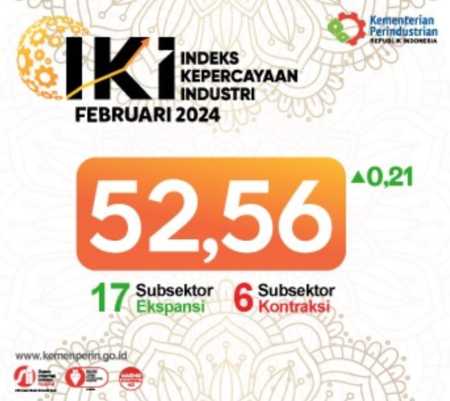July 2020’s Most Wanted Malware: Emotet Strikes Again After Five-Month Absence
By : Krishna Anindyo | Wednesday, August 12 2020 - 14:15 IWST

Check Point Software Technologies (Images by Acclaim)
INDUSTRY.co.id - Singapore – August 11th, 2020 – Check Point Research, the Threat Intelligence arm of Check Point Software Technologies Ltd. (NASDAQ: CHKP), a leading provider of cyber security solutions globally, has published its latest Global Threat Index for July 2020. Researchers found that after a five-month absence, Emotet has surged back to 1st place in the Index, impacting 5% of organisations globally.
Since February 2020, Emotet’s activities – primarily sending waves of malspam campaigns – started to slow down and eventually stopped, until re-emerging in July. This pattern was observed in 2019 when the Emotet botnet ceased activity during the summer months but resumed in September.
In July, Emotet was spreading malspam campaigns, infecting its victims with TrickBot and Qbot, which are used to steal banking credentials and spread inside networks. Some of the malspam campaigns contained malicious doc file with names like “form.doc” or “invoice.doc”.
According to researchers, the malicious document launches a PowerShell to pull the Emotet binary from remote websites and infect machines, adding them to the botnet. The resumption of Emotet’s activities highlights the scale and power of the botnet globally.
“It’s interesting that Emotet was dormant for several months earlier this year, repeating a pattern we first observed in 2019. We can assume that the developers behind the botnet were updating its features and capabilities. But as it is active again, organisations should educate employees about how to identify the types of malspam that carry these threats and warn about the risks of opening email attachments or clicking on links from external sources. Businesses should also look at deploying anti-malware solutions that can prevent such content reaching end-users,” said Maya Horowitz, Director, Threat Intelligence & Research, Products at Check Point.
The research team also warns that “MVPower DVR Remote Code Execution” is the most common exploited vulnerability, impacting 44% of organisations globally, followed by “OpenSSL TLS DTLS Heartbeat Information Disclosure” which impacts 42% of organisations worldwide. “Command Injection Over HTTP Payload” is in third place, with a global impact of 38%.
Top malware families
The arrows relate to the change in rank compared to the previous month.
This month Emotet is the most popular malware with a global impact of 5% of organisations, closely followed by Dridex and Agent Tesla affecting 4% of organisations each.
Emotet – Emotet is an advanced, self-propagating and modular Trojan. Emotet was originally a banking Trojan, but recently is used as a distributor of other malware or malicious campaigns. It uses multiple methods for maintaining persistence and evasion techniques to avoid detection. In addition, it can be spread through phishing spam emails containing malicious attachments or links.
Dridex – Dridex is a Trojan that targets the Windows platform and is reportedly downloaded via a spam email attachment. Dridex contacts a remote server and sends information about the infected system. It can also download and execute arbitrary modules received from the remote server.
Agent Tesla – Agent Tesla is an advanced RAT functioning as a keylogger and information stealer capable of monitoring and collecting the victim's keyboard input, system clipboard, taking screenshots, and exfiltrating credentials belonging to of a variety of software installed on a victim's machine (including Google Chrome, Mozilla Firefox and Microsoft Outlook email client).
Top exploited vulnerabilities
This month “MVPower DVR Remote Code Execution” is the most common exploited vulnerability, impacting 44% of organisations globally, followed by “OpenSSL TLS DTLS Heartbeat Information Disclosure” which impacts 42% of organisations worldwide. “Command Injection Over HTTP Payload” is in third place, with a global impact of 38%.
MVPower DVR Remote Code Execution – A remote code execution vulnerability that exists in MVPower DVR devices. A remote attacker can exploit this weakness to execute arbitrary code in the affected router via a crafted request.
OpenSSL TLS DTLS Heartbeat Information Disclosure (CVE-2014-0160; CVE-2014-0346) – An information disclosure vulnerability that exists in OpenSSL. The vulnerability is due to an error when handling TLS/DTLS heartbeat packets. An attacker can leverage this vulnerability to disclose memory contents of a connected client or server.
Command Injection Over HTTP Payload – A command injection over HTTP payload vulnerability has been reported. A remote attacker can exploit this issue by sending a specially crafted request to the victim. Successful exploitation would allow an attacker to execute arbitrary code on the target machine.
Top mobile malware families
This month xHelper is the most popular malware, followed by Necro and PreAMo.
xHelper – A malicious application seen in the wild since March 2019, used for downloading other malicious apps and display advertisements. The application can hide itself from the user, and reinstall itself in case it was uninstalled.
Necro – Necro is an Android Trojan Dropper. It can download other malware, showing intrusive ads and stealing money by charging paid subscriptions.
PreAMo – PreAmo is an Android Malware imitates the user by clicking on banners retrieved from three ad agencies – Presage, Admob, and Mopub.
Read Also
MoreLogin, the World's #1 Antidetect Browser, Showcased at Affiliate…
Experts gather in Nanning to support high-quality development of…
Huawei Garners Award from Manpower Ministry as Best Foreign Enterprise…
Government's Role in Consumer Protection in the Digital Era
Huawei Supplier Convention 2023: Driving Collaboration and Innovation…
Today's Industry

Selasa, 23 April 2024 - 10:29 WIB
President Jokowi Reaffirms Commitment to Farmers’ Welfare
President Joko “Jokowi” Widodo on Monday (04/22) inspected corn harvest in Boalemo regency, Gorontalo province. “Our corn import has decreased significantly from 3.5 million tonnes to…

Rabu, 28 Februari 2024 - 12:47 WIB
Carsurin and NBRI Strengthen Strategic Alliance to Propel Indonesia’s EV Industry
PT Carsurin Tbk ("Carsurin") and the National Battery Research Institute ("NBRI") are pleased to announce the signing of a pivotal Strategic Alliance Agreement (SAA), marking a significant advancement…

Rabu, 21 Februari 2024 - 08:43 WIB
Gov’t to Continue Disbursing Rice Assistance
President Joko “Jokowi” Widodo has ensured that the Government will continue rolling out the rice assistance program for low-income families. The President made the statement when handing…

Rabu, 21 Februari 2024 - 08:40 WIB
Bapanas Head Ensures Availability of Rice Stock Ahead of Ramadan
The National Food Agency (Bapanas) has ensured the availability of rice for the fasting month of Ramadan and Eid al-Fitr 1445 Hijri/2024 CE. “We believe that there is enough rice for the fasting…

Rabu, 21 Februari 2024 - 08:23 WIB
Receives Chairman of Jababeka (KIJA), Menpora Dito Ready to Support the Development of Sports SEZs
Chairman of PT Jababeka Tbk (KIJA), Setyono Djuandi Darmono met the Minister of Youth and Sports of the Republic of Indonesia (Menpora RI) Dito Ariotedjo at the Kemenpora RI Office, Senayan,…

















News Comment